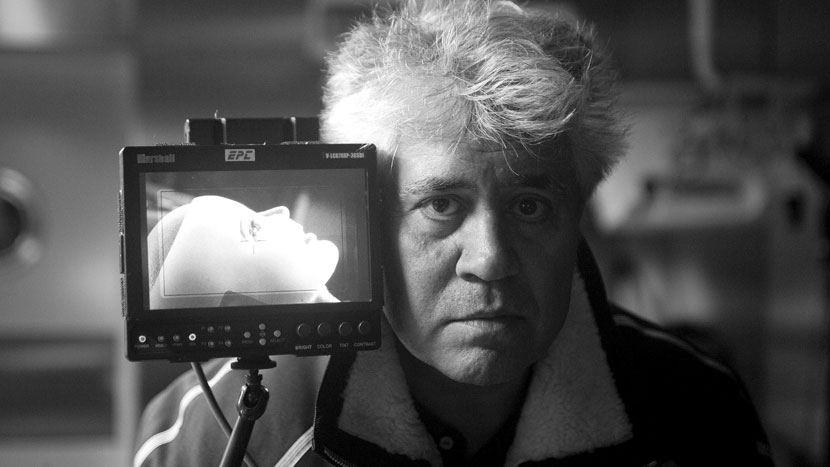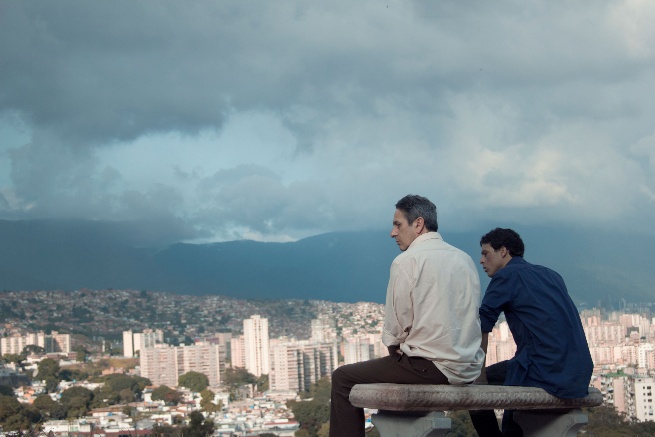Cinco cortometrajes gallegos de reciente creación protagonizan la undécima edición del Galician Film Forum en Londres

El Galician Film Forum (GFF) celebrará su undécima edición, titulada ‘Shorts Edition’, con un programa centrado en cortometrajes del audiovisual gallego que han visto la luz recientemente. La actividad tendrá lugar el viernes, 22 de noviembre, en la universidad King´s College London [19 h, Edmond J Safra Theatre, Strand Campus, WC2R 2LS]. Los títulos seleccionados para la ocasión son ‘A nena azul’ de Sandra Sánchez, ‘Marusía’ de Pedro Sancho, ‘Soy una tumba’ de Khris Cembe, ‘Limbo’ de Daniel Viqueira y ‘Beautiful Boy’ de Fran X. Rodríguez. Además, tras las proyecciones el público tendrá la oportunidad de mantener un coloquio con la directora y montadora Sandra Sánchez, que se desplazará a Londres para participar en esta edición.
Como es habitual, todas las cintas se proyectarán en versión original con subtítulos en inglés y el encuentro se celebrará en inglés y gallego. La entrada del evento es gratuita pero es preciso reservarla con antelación en el siguiente enlace. Esta undécima edición del GFF cuenta con el apoyo del Departament of Spanish, Portuguese and Latin American Studies del King´s College London, el patrocinio de ABANCA y la colaboración de la Oficina para Asuntos Culturales y Científicos de la Embajada de España en Londres.
El programa de esta Shorts Edition trae hasta Londres una selección de recientes cortometrajes gallegos que destaca por su diversidad de géneros. Con la ficción como hilo conductor, el público va a tener la oportunidad de visionar obras llenas de humor como “Beautiful Boy” o “Marusía”. También habrá espacio para la reflexión poética que planea en ‘A nena azul’ e, incluso, piezas de estilos poco habituales en el cortometraje gallego como la animación o el terror y de los que son buenos ejemplos “Soy una tumba” y “Limbo”, respectivamente.
Cortos multipremiados
Además de su carácter reciente, los títulos que se proyectarán en el Galician Film Forum comparten una exitosa trayectoria en festivales cinematográficos. En este sentido, hay que destacar la participación de ‘Limbo’ en más de un centenar de encuentros y que, por ahora, se ha traducido en una veintena de galardones entre los que destacan el de mejor cortometraje en el Grimmfest Manchester’s Festival of Fantastic Films; mejor director en el Cryptshow Festival; la Calaverita de Bronce en el Morbido Film Fest; el Premio Jurado Joven del Festival Ibérico de Cinema, el Mejor Cortometraje en Terroríficamente Cortos o el de Scariest Film en el Desmond District Demons, entre otros.
El éxito de ‘Soy una tumba’ también merece una mención especial ya que, además de poder presumir de haber sido nominado en la categoría de Mejor cortometraje de animación en los Premios Goya de este año, atesora un palmarés que no para de crecer a su paso por festivales. En ese listado destacan el de Mejor Cortometraje de Animación en los XVII Premios Mestre Mateo; Mejor Cortometraje de Animación en el Festival de Cortometrajes La Fila de Valladolid; Mejor Cortometraje Nacional en Cortoons Gandia 2019; Mejor Cortometraje Nacional y Mejor Cortometraje de Animación en el Festival Nacional de Ciudad de Ávila Ávilacine; Mejor Guion en Anima Deba Animazio Zinemaldia; el primer premio en el Ourense Film Festival; o el de mejor cortometraje de animación en el XX Festival de Cortometrajes Asier Errasti, por citar algunos.
Por su parte, ‘A nena azul’ aterriza en Londres con la Mención Especial del Jurado Planeta GZ y el Premio CREA a la mejor dirección Gallega XV del Curtocircuito International Film Festival (Santiago de Compostela); el Premio Mestre Mateo al Mejor Cortometraje en la XVII edición de estos galardones que concede la Academia Galega do Audiovisual; y los premios a la Mejor Fotografía y el Mejor Sonido en el VI Festival Nacional de Cortometrajes de Talavera de la Reina (Madrid).
En lo que respecta a ‘Beautiful Boy’, ha sido reconocido en varias ocasiones con el premio del público, como por ejemplo en el XVI Festival de Cans y en el Primavera do Cine, y también ha recibido galardones como el Premio al Mejor Guion de la Mostra de Curtas Vila de Noia. Para finalizar, ‘Marusía’, el cortometraje más reciente de los seleccionados, tuvo su premier internacional en el 8º Resistencia Film Festival de Chile y consiguió este octubre el Premio del Público al Mejor Cortometraje Gallego en la XLI Semana del Cine de Lugo.
Mirada atlántica
La invitada especial de esta edición del Galician Film Forum es la directora y montadora Sandra Sánchez. En el año 2011 presentó su proyecto más personal, el documental “Tralas luces”, una obra a la que dedicó cuatro años y que fue estrenada en la sección de nuevos directores del Festival de San Sebastián. Posteriormente continuó trabajando como montadora en series, documentales y películas como ‘Migas de pan’, ‘Esquece Monelos’, ‘Querida Gina’ o ‘Rafael’. También dirigió los cortometrajes ‘Matías’, dentro del encuentro de cineastas Chanfaina Lab, y ‘A nena azul’.
En la actualidad, Sandra Sánchez trabaja en el Laboratorio de Producción Audiovisual de los Museos Científicos Coruñeses y está escribiendo el guion del que será su primer largometraje de ficción, ‘La nadadora’, un proyecto íntimamente ligado a ‘A nena azul’, pues los dos films tienen la misma protagonista.
Galician Film Forum
El GFF nació en 2015 en el seno de un grupo de gallegos emigrados a Londres con el objetivo de crear un espacio para la difusión del cine gallego en la capital británica. Su actividad se articula en tres ejes: como plataforma de exhibición, como observatorio de la nueva diáspora creativa audiovisual en el Reino Unido y como espacio de reflexión sobre el cine y la cultura gallega en términos universales.
- Entradas: https://gffshortsedition.eventbrite.co.uk
- A nena azul: http://anenaazul.com/
- Limbo: https://www.facebook.com/curtametraxelimbo
- Soy una tumba: https://www.facebook.com/soyunatumba/
- Marusía: https://www.facebook.com/contarteproduce/
- Beautiful Boy: https://www.nenobonito.info/
Five recent Galician short films to be screened at the 11th Galician Film Forum in London

The Galician Film Forum (GFF) will celebrate its 11th event, titled ‘Shorts Edition’, with a programme focused on Galician short films that have been released recently. The event will take place on Friday 22 November at King’s College London [19 h, Edmond J Safra Theatre, Strand Campus, WC2R 2LS]. The films that have been selected for the event are ‘A nena azul’ by Sandra Sánchez, ‘Marusía’ by Pedro Sancho, ‘Soy una tumba’ by Khris Cembe, ‘Limbo’ by Daniel Viqueira and ‘Beautiful Boy’ by Fran X. Rodríguez. After the screening, the audience will have the opportunity to speak with director and film editor Sandra Sánchez, who will be in London to participate in this event.
As is usual, all of the films will be screened in Galician with subtitles in English and the event will take place in English and Galician. Tickets are free, but it is essential to reserve them in advance at this link. The eleventh edition of the GFF has been made possible thanks to support from the Department of Spanish, Portuguese and Latin American Studies at King’s College London, sponsorship from ABANCA and collaboration from the Office for Cultural & Scientific Affairs at the Spanish Embassy in London.
This Shorts Edition will bring a range of recent Galician short films to London. With fiction as the main thread running through the selection of films, the audience will have the opportunity to watch films that are full of humour like “Beautiful Boy” and “Marusia”. There will also be space for poetic reflection, as in “A nena azul”, and even some short films which are quite unconventional for this genre in Galicia, like animation and terror, with “Soy una tumba” and “Limbo” standing as good examples.
Award-winning short films
As well as having been released recently, the films that will be screened at the Galician Film Forum share in having had significant success at film festivals. In this regard, the successes of ‘Limbo’ must be underlined. ‘Limbo’ has participated in more than a hundred festivals and has received twenty prizes to date, including best short film at Grimmfest Manchester’s Festival of Fantastic Films; best director at Cryptshow Festival; the Calaverita de Bronce at the Morbido Film Fest; the Young Jury award at the Festival Ibérico de Cinema, Best Short Film at Terroríficamente Cortos and the award for Scariest Film at the Desmond District Demons, amongst others.
The success of ‘Soy una tumba’ also deserves a special mention since, as well as having been nominated for Best animated short film at the Goya awards this year, it continues to win awards as it goes around different festivals. Some of these awards include Best Animated Short at the XVII Premios Mestre Mateo; Best Animated Short at the Festival de Cortometrajes La Fila de Valladolid; Best National Short Film at Cortoons Gandia 2019; Best National Short Film and Best Animated Short Film at the Festival Nacional de Ciudad de Ávila Ávilacine; Best Script at Anima Deba Animazio Zinemaldia; first prize at Ourense Film Festival; and best animated short film at the XX Festival de Cortometrajes Asier Errasti, to cite just a few.
‘A nena azul’ lands in London having won the Special Mention prize from the jury at Planeta GZ and the Premio award for best directing Gallega XV at the Curtocircuito International Film Festival (Santiago de Compostela); the Mestre Mateo award for Best Short Film at the XVII edition of this ceremony which is organised by the Galician Audiovisual Academy. It has also won prizes for Best Photography and Best Sound at the VI National Festival of Short Films in Talavera de la Reina (Madrid).
With regards to ‘Beautiful Boy’, it has been recognised on several occasions, winning the audience prize for example at the XVI Festival de Cans and Primavera do Cine. It has also received awards like the prize for Best Script at the Mostra de Curtas Vila de Noia. To close, ‘Marusía’, the most recent of the short films that the Galician Film Forum will be screening, won its first international award at the 8th Resistencia Film Festival de Chile and won, in October, the Audience Award for Best Galician Short Film at the XLI Semana del Cine de Lugo.
Atlantic Gaze
The guest of honour at this edition of the Galician Film Forum is the director and producer Sandra Sánchez. In 2011 she presented her most personal project, a documentary called “Tralas luces”, which took four years to make and was premiered in the section for new directors at the Festival de San Sebastián. Sánchez then continued working as a producer on a variety of series, documentaries and films like ‘Migas de pan’, ‘Esquece Monelos’, ‘Querida Gina’ and ‘Rafael’. She also directed the short films ‘Matías’, which appeared at Chanfaina Lab, and ‘A nena azul’.
Sandra Sánchez is currently working in the Laboratory for Audiovisual Production at the Scientific Museums of A Coruña and she is writing the script for what will be her first feature-length fiction film, ‘La nadadora’, a project intimately linked to ‘A nena azul’ because both films have the same protagonist.
Galician Film Forum
The GFF started in 2015 when a group of Galicians living in London came together to create a space for Galician cinema in the British capital. It functions in three different ways: as an exhibition platform, as an observatory for the new creative audiovisual diaspora in the UK and as a space for reflecting on Galician cinema and culture in universal terms.
- Tickets: https://gffshortsedition.eventbrite.co.uk
- A nena azul: http://anenaazul.com/
- Limbo: https://www.facebook.com/curtametraxelimbo
- Soy una tumba: https://www.facebook.com/soyunatumba/
- Marusía: https://www.facebook.com/contarteproduce/
- Beautiful Boy: https://www.nenobonito.info/
«We film little, and in these times, it is also a declaration of principles»
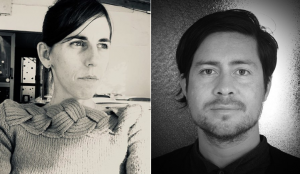
We interview filmmakers Teresa Arredondo and Carlos Vásquez Méndez after the premiere of their movie The Crosses at Open City Documentary Festival in London. Arredondo is a psychologist and filmmaker, her work in cinema revolves around the autobiographical. Her first work is a portrait of the last years of her grandmother, writer Matilde Ladrón de Guevara. Her first feature film, Sibila, received numerous awards at festivals around the world. She is a FIDOCS programmer and is co-founder of the Laguna Negra studio with Vásquez, with whom she develops different experimental and essay documentary film projects.
In the case of Vásquez, he is an artist and researcher. He uses cinema and photography from documentaries and an experimental perspective, establishing constant correspondences between artistic practice, social sciences, analog and digital. His works have been exhibited in various exhibitions and festivals. In 2016 his film [Pewen] Araucaria received the Joris Ivens / Center National des Artes Plastiques (France). With a bachelor of Cinema, a Master of Creation Documentary (IDEC / UPF) and a Master of Contemporary Artistic Creation (UB), he is currently developing his doctoral research.
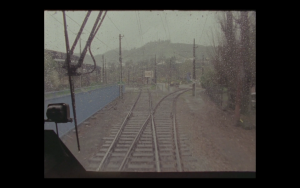
1. What does it mean for you to present Las Cruces in London?
It is our premiere in the UK, it is always interesting to hear the opinions of audiences other than Chilean and Latin American, who unfortunately share a dark part of our recent past and take the history of the film to our particular territories. That is why it is important to contrast the universality of this story about these heinous crimes, which although it arose in a particular context, speak of the banality of evil, about the economic sector as the factual power, about how the official history is written from the spheres of power.
2. What was the reception like in the United Kingdom?
In the Bertha DocHouse room all tickets were sold, we were surprised by the response of the London audience.
3. Las Cruces was recorded in 16mm, why this format?
We work in 16mm because we both learned cinema at film school – we understand cinema in this format and we are still trying to remain faithful to this material. More than a fascination for the plastic characteristics of the film image, we are interested in the methodology involved, the material is expensive, scarce and delicate, it forces us to prepare a lot every shot, rehearse, be very concentrated, film little. And in these times, it is also a declaration of principles: let’s say it is a conscious position as opposed to the banalization of images in the era of social networks.
4. Why did you decide to make this documentary?
This case has several peculiarities with respect to the totality of crimes of the dictatorship. The first is the participation of private in the crimes, the second is that there are confessions of the perpetrators, the third is the time that justice has been taken in issuing a sentence and this is a very symptomatic detail of the symbolic relevance of this case. Because it would be the first time that a company of a powerful family is imputed as a direct accomplice of crimes of disappearance and murder of Chilean citizens for their political ideas.
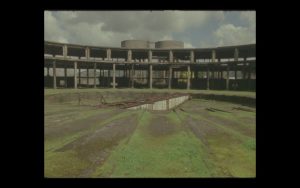
5. What was the response among the relatives of the 19 murdered?
They always agreed with the project, although we gave voice to the testimonies of the murderers instead of theirs. From the beginning they understood the central idea of the film and collaborated in every world without impositions or any conditions. They helped in the election of the inhabitants of the town who read the judicial documents, since the only condition we put to the relatives was that we did not want to expose them or submit them for reading in front of the camera. Our intention was to take care of them, work alongside them, not use their suffering.
6. What are you working on now?
The next thing is an exhibition in Port Bou at the end of September around the figure of Walter Benjamin and his tragic death. I have prepared a film piece – experimental medium-length film – about his trip through the Eastern Pyrenees before his life was taken away. With Teresa, the co-director of Las Cruces, we are working on three new projects together. The new pieces focus on the treaties on colonial history in Chile, from Spanish colonization to the planned colonization of citizens of northern Europe in the 19th century and the current post and neo-colonization of the most peripheral provinces. We have a studio called Laguna Negra, after Las Cruces, we really want to get a new movie together soon, hopefully we’ll have something next year.
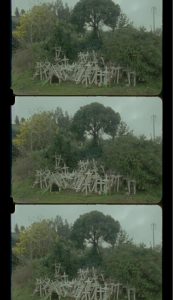
«Filmamos poco, y eso en estos tiempos es una declaración de principios»


Cinema in Spanish stands out in the month of festivals in London
This September, Instituto Cervantes offers a range of events which highlight the support for the presence of Spanish-speaking films and filmmakers in the British capital’s most important festivals and artistic venues (BFI, Open City Documentary Festival, LUX, Tate Modern, Institute of Contemporary Arts, London Spanish Film Festival and Raindance Film Festival).
“The vitality of cinema in Spanish is one of the features that define the current state of cinema in the world. And a cinema with a global appeal, such as ours, must be shown in a global capital such as London,” says Ignacio Peyró, director of Instituto Cervantes in the British capital.
Thanks to Instituto Cervantes, Spanish and Latin-American filmmakers can be part of a range of prestigious festivals held in London, thus increasing the visibility of the productions shot in Spain – be it in Spanish or co-official languages - and Latin America, Peyró adds.
Open City Documentary Festival: A 40-year unsolved mystery
The month begins with the screening of the Chilean documentary feature «The Crosses» and the subsequent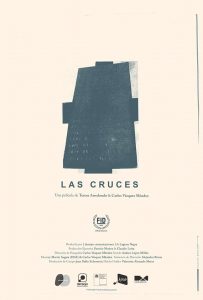 colloquium with the directors Teresa Arredondo and Carlos Vásquez Méndez, on Sunday, September 8 at 1:45 pm, in the Open City Documentary Festival program.
colloquium with the directors Teresa Arredondo and Carlos Vásquez Méndez, on Sunday, September 8 at 1:45 pm, in the Open City Documentary Festival program.
This will be the premiere of Las Cruces in the United Kingdom, which is set only a few days after the 1973 military coup against the Allende government in Chile, when a group of 19 union members in a paper mill disappeared without a trace.
The case was a mystery for 40 years, until a police officer involved in the massacre finally broke the pact of silence. Hearing his confession alongside the testimony of the families of the victims, the filmmakers decipher the events that led to the murders, using 16 mm photographs to represent the landscape as a crime scene.
LUX: Artists works based in the United Kingdom

On Sunday, September 15 at 7:00 pm, a screening of the new works of directors Carla Andrade and Gerard Ortín takes place, with a subsequent colloquium, in the context of LUX New Work screening series, showcasing recent work by artists based in the UK.
Their work is concerned with ideas of landscape, but whereas Andrade is drawn to non-domesticated nature for its unattainability and unownability, Ortín Castellví’s work problematizes the idea of “nature” itself as well as its imagery, often looking at human and more-than-human relations.
They both work across media, with a focus on the moving image. At LUX, a selection of recent works by both artists will be screened followed by a conversation between them and María Palacios Cruz (LUX).
Berwick Film & Media Arts Festival 2019: A dialogue between cultures

Barcelona-based filmmaker Carlos Casas presents the film «Cemetery», a total and hypnotic immersion in the jungle, on the trail of the elephant graveyard, then participates in a colloquium at the Tate Modern contemporary art gallery next Wednesday, September 18 September, at 6:30 pm, at the Berwick Film & Media Arts Festival 2019.
Artist Casas returns to Tate Modern to present the UK premiere of his award-winning feature Cemetery. This deeply sensory film follows an elephant, a mahout and the poachers in their pursuit as they move toward the mythical place known as the elephant graveyard. As the journey transitions from the jungle through stages of death, images begin to fall away, opening onto a rich sonic landscape.
Ten years in the making, Cemetery weaves together field recordings from around the globe, recorded and mixed by wildlife sound expert Chris Watson with the collaboration of professor Tony Myatt (spatialisation and Ambisonics). Finding a striking juncture between nature documentary, experimental film, road movie and soundscape, the film opens up questions about life cycles and memory, colonialism and extinction, conservation and the environment and interspecies relationships.
ICA: The portrait of the youth of a Madrid neighborhood
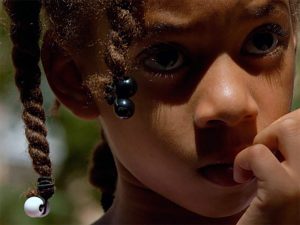
Pontevedra director Carmen Bellas will participate in a colloquium at the Institute of Contemporary Arts in London (ICA), after the screening of her acclaimed short film «When we were wild», on September 22 at 8:30 pm.
«Being able to screen the film in London is very exciting; it brings us closer to different audiences and thanks to them we can capture other nuances of our project,» explains Bellas.
Once we were wild, a portrait of the young people of a San Cristóbal neighbourhood on the outskirts of Madrid, won the prized Caracola in the feature film category at the 49th edition of the Reach Documentary Festival. This unique and suggestive representation of place progressively abandons a classic documentary structure to become a first person essay.
Raindance Film Festival: The life of Ara Malikian, uncovered

This year, the Cervantes Institute in London also collaborates with the Raindance Film Festival, a prestigious independent film festival, with the screening of the documentary «Ara Malikian: a life between the ropes» and subsequent colloquium with the director Nata Moreno, which takes place on Tuesday 24 September, at 6:00 pm.
The play portrays the versatile violinist Ara Malikian, whose life was saved by music when he fled the war and left Beirut at age 14. Since then he has lived as a nomad carrying his music all over the world. The spectator follows Ara Malikian and his entire team during their last symphonic tour of Spain and countries such as France, China, Argentina and Germany
Moreno is the stage director of the shows of the Malikian, as well as creator and producer of her [JR5] [PE-AT6] music videos and campaigns. In 2016, she set up her own production company Kokoro Films with whichs she carries out various advertising campaigns and personal projects.
Raindance Film Festival: A black comedy with a star cast
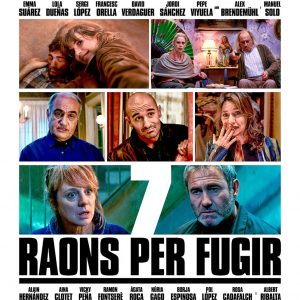 On Thursday, September 26, at 7:45 p.m., the UK premiere of the Catalan comedy «7 raons per fugir», by Gerard Quinto, Esteve Soler, David Torras, followed by a discussion with one of the filmmakers, which is part of the Raindance Film Festival.
On Thursday, September 26, at 7:45 p.m., the UK premiere of the Catalan comedy «7 raons per fugir», by Gerard Quinto, Esteve Soler, David Torras, followed by a discussion with one of the filmmakers, which is part of the Raindance Film Festival.
Soler adapts his own theatrical texts to give way to a black comedy with a star cast in which the dehumanization of the society in which we live is treated through everyday situations that deform.
The family, the poor kid who appears on TV, the sixth-floor neighbours, the tenant and the real estate agent, the business couple, the guy progress has run over and the couple about to get married. Seven stories that intertwine horror and comedy. Seven scenes of black humour as strange as they are unexpected. Seven surreal perspectives on a society that can’t progress, a dysfunctional society.
Showing at the London Spanish Film Festival

The month of September ends with the participation of the Cervantes Institute in the acclaimed London Spanish Film Festival through two screenings. First, on September 26 at 6:30 pm the documentary Peret will be screened, “Peret: the King of the Gypsy Rumba”, by Paloma Zapata, niece of the acclaimed and respected artist.
Winner of the Best International Film at the MUVI Music Film Festival 2019, it is a must for music lovers. This is an intimate portrait and at the same time a tribute to Pere Pubill Calaf, Peret for the whole world, the king of Catalan rumba for history raised in the humble neighborhood of Sant Antoni, in Barcelona.
Finally, on September 28, at 4:00 pm, the Galician screening of Trinta lumes and a colloquium with its director, Pontevedra Diana Toucedo, takes place. Recorded in the Galician region of O Courel, the director takes us to her roots and shows the reality of the Galician community from the eyes of Alba, the protagonist of this film. A work that foregrounds issues of life and death, delving into the past with a look at the present.
El cine en español protagoniza el mes de los festivales en Londres
El Instituto Cervantes de Londres cuenta con un programa cultural este mes de septiembre en el que destaca el apoyo a la presencia de películas y cineastas hispanohablantes en los festivales y salas más importantes de la capital británica (BFI, Open City Documentary Festival, LUX, Tate Modern, Institute of Contemporary Arts, London Spanish Film Festival y Raindance Film Festival).
“La vitalidad del cine en español es uno de los rasgos que definen el actual momento del cine en el mundo. Y un cine con vocación global, como es el nuestro, debe mostrarse en una capital global como es Londres”, afirma Ignacio Peyró, director del Instituto Cervantes en la capital británica.
Gracias al Instituto Cervantes, cineastas españoles e hispanoamericanos pueden formar parte de gran parte de festivales de prestigio celebrados en Londres, aumentando así la visibilidad de las producciones rodadas en España –sea en castellano o lenguas cooficiales- e Hispanoamérica, añade Peyró.

Las cruces (2018)
Open City Documentary Festival: Un misterio sin resolver 40 años
El mes comienza con la proyección del largometraje documental chileno Las cruces y el posterior coloquio con los directores Teresa Arredondo y Carlos Vásquez Méndez, el domingo 8 de septiembre a la 1:45 pm, dentro del programa del Open City Documentary Festival.
Este será el estreno de Las cruces en Reino Unido, que sitúa la acción solo unos días después del golpe militar de 1973 contra el gobierno de Allende en Chile, cuando un grupo de 19 miembros sindicales en una fábrica de papel desaparecieron sin dejar rastro.
El caso fue un misterio durante 40 años, hasta que un policía involucrado en la masacre finalmente rompió el pacto de silencio. Tomando su confesión junto con el testimonio de las familias de las víctimas, los cineastas descifran los eventos que condujeron a los asesinatos, usando fotografías de 16 mm para representar el paisaje como una escena del crimen.
LUX: Trabajos de artistas con sede en el Reino Unido

Reserve (Gerard Ortín Castellví, 2017-2019) y El paisaje está vacío y el vacío es paisaje (Carla Andrade, 2017)
El domingo 15 de septiembre a las 7:00 pm tiene lugar la proyección, con posterior coloquio, de los Nuevos trabajos de los directores Carla Andrade y Gerard Ortín, dentro del programa de LUX, la agencia de arte internacional que apoya las prácticas de imagen en movimiento de los artistas y las ideas que las rodean.
La viguesa Andrade y el barcelonés Castellví son graduados españoles del título de Cine de Artistas e Imagen en Movimiento en Goldsmiths, Universidad de Londres. Su trabajo está enfocado hacia conceptos paisajísticos. Mientras que Andrade se siente atraído por la naturaleza salvaje por su inalcanzabilidad e imposibilidad, el trabajo de Ortín problematiza la idea de la «naturaleza» en sí misma, en un imaginario no siempre enfocado hacia las ideas humanas de naturaleza.
Ambos trabajan a través de los medios de comunicación, con un enfoque en la imagen en movimiento. Dentro del contexto de la serie de proyecciones New Work en Lux, se proyectará una selección de obras recientes de ambos artistas seguida de una conversación entre ellos y María Palacios Cruz.
Berwick Film & Media Arts Festival 2019: Un diálogo entre culturas

Cemetery, film still (2019)
En el caso del cineasta barcelonés Carlos Casas presenta la película Cemetery, una inmersión total e hipnótica en la jungla, tras la pista del cementerio de elefantes, y participa acto seguido en un coloquio en la galería de arte contemporáneo Tate Modern el próximo miércoles 18 de septiembre, a las 6:30 pm, dentro del Berwick Film & Media Arts Festival 2019.
Esta película profundamente sensorial sigue a un elefante, un mahout y los cazadores furtivos en su búsqueda mientras se mueven hacia el lugar mítico conocido como el cementerio de elefantes. A medida que el viaje pasa de la jungla a través de las etapas de la muerte, las imágenes comienzan a desaparecer y se abren en un rico paisaje sonoro.
A medida que el viaje pasa de la jungla a través de las etapas de la muerte, las imágenes comienzan a desaparecer y se abren en un rico paisaje sonoro. Diez años después, Cemetery teje grabaciones de campo de todo el mundo, grabadas y mezcladas por el experto en sonido de la vida silvestre Chris Watson.
Al encontrar una coyuntura sorprendente entre el documental de la naturaleza, la película experimental, la road movie y el paisaje sonoro, la película abre preguntas sobre los ciclos de vida y la memoria, el colonialismo y la extinción, la conservación y el medio ambiente y las relaciones entre especies.
Para Casas su objetivo ha sido siempre “mostrar al espectador sus experiencias, a través del encuentro y el dialogo con otras culturas y lugares”, que reconoce que han sido siempre el centro de sus intereses.
ICA: El retrato de la juventud de un barrio madrileño

Una vez fuimos salvajes (2016)
La directora pontevedresa Carmen Bellas participará en un coloquio en el Institute of Contemporary Arts de Londres (ICA, por sus siglas en inglés), tras la proyección de su aclamado cortometraje Una vez fuimos salvajes, el 22 de septiembre a las 8:30 pm.
«Poder proyectar la película en Londres es muy emocionante, nos acerca a audiencias diferentes y gracias a ellas podemos captar otros matices de nuestro proyecto”, explica Bellas.
Una vez fuimos salvajes, retrato de la juventud de un barrio de San Cristóbal en la periferia de Madrid, consiguió la preciada Caracola en la categoría de largometrajes en la 49ª edición del Festival de Documental Alcances. Esta representación única y sugerente de un lugar abandona progresivamente una estructura documental clásica para convertirse en un ensayo en primera persona.
Raindance Film Festival: La vida de Ara Malikian, al descubierto

Ara Malikian: una vida entre las cuerdas (2019)
Este año, el Instituto Cervantes de Londres también colabora con el Raindance Film Festival, prestigioso festival de cine independiente, con la proyección del documental Ara Malikian: una vida entre las cuerdas y posterior coloquio con la directora Nata Moreno, que tiene lugar el martes 24 de septiembre, a las 6:00 pm.
La obra retrata al versátil violinista Ara Malikian, a quien la música salvó su vida cuando huyó de la guerra y dejó Beirut a los 14 años. Desde entonces ha vivido como un nómada llevando su música por todo el mundo. El espectador puede seguir a Ara Malikian y a todo su equipo durante su última gira sinfónica por España y países como Francia, China, Argentina, Alemania, etc.
Moreno es directora escénica de los espectáculos del citado músico, así como creadora y realizadora de sus videoclips y campañas. En 2016 montó su propia productora Kokoro Films con la que realiza diversas campañas publicitarias y sus proyectos personales.
Raindance Film Festival: Una comedia negra con un reparto de lujo
 El jueves 26 de septiembre, a las 7:45 pm, tiene lugar el estreno en Reino Unido de la comedia 7 raons per fugir, de Gerard Quinto, Esteve Soler, David Torras, seguida de un coloquio con uno de los realizadores, que se enmarca dentro del Raindance Film Festival.
El jueves 26 de septiembre, a las 7:45 pm, tiene lugar el estreno en Reino Unido de la comedia 7 raons per fugir, de Gerard Quinto, Esteve Soler, David Torras, seguida de un coloquio con uno de los realizadores, que se enmarca dentro del Raindance Film Festival.
Soler adapta sus propios textos teatrales para dar paso a una comedia negra con un reparto de lujo en la que se trata la deshumanización de la sociedad en la que vivimos a través de situaciones cotidianas que se deforman.
Siete historias que mezclan el horror y la comedia. Siete visiones surrealistas de una sociedad que no progresa: la familia, la inquilina, la boda, el empresario, los vecinos, el niño pobre y el atropellado. Un matrimonio que intenta ‘abortar’ a su hijo adulto. Una pareja a la que se le presenta el tercer mundo en casa. Una escalera de vecinos que no recuerdan que va después del seis. Un agente inmobiliario que intenta vender un piso con posibilidades, pero con el antiguo inquilino colgando de la lámpara. Un matrimonio ‘bien’ con setecientos esclavos trabajando bajo el suelo. Un hombre atropellado y una mujer que cree que no merece la pena llamar a la ambulancia. Una pareja a punto de darse el ‘sí, quiero’, hasta que la muerte los separe.
Representación en el London Spanish Film Festival

El mes de septiembre termina con la participación del Instituto Cervantes en el aclamado London Spanish Film Festival a través de dos proyecciones. En primer lugar, el 26 de septiembre a las 6:30 pm se proyectará el documental Peret, yo soy la rumba, de Paloma Zapata, sobrina del aclamado y respetado artista.
Ganador de la Mejor Película Internacional en el MUVI Music Film Festival 2019, es de visión obligada para los amantes de la música. Este es un retrato íntimo y a la vez un homenaje a Pere Pubill Calaf, Peret para el mundo entero, el rey de la rumba catalana para la historia criado en el humilde y gitano barrio de Sant Antoni, en Barcelona.
Por último, el 28 de septiembre, a las 4:00 pm, tiene lugar la proyección en gallego de Trinta lumes y un coloquio con su directora, la pontevedresa Diana Toucedo. Grabado en la región gallega de O Courel, la directora nos traslada a sus raíces y muestra la realidad de la comunidad gallega desde los ojos de Alba, la protagonista de esta película. Una obra que plantea un escenario sobre las cuestiones de la vida y la muerte, ahondando en el pasado con una mirada hacia al presente.
Almodóvar dará una charla en Londres el día 12 de agosto / Almodovar To Give Speech In London On 12 August
Este verano, Londres se está volcando en la figura y obra del director manchego Pedro Almodóvar. Al preestreno de «Julieta» por partida doble, mañana 10 en Somerset House y el jueves 11 en BFI Southbank antes de estrenarse en abierto en todo el país el próximo 26 de agosto, se le suma una charla de Almodóvar el viernes 12 (entradas agotadas) en la que tratará su carrera, trabajo y la industria del cine en general.
Pedro es conocido mundialmente por su producto de autor, con un enfoque peculiar de las emociones humanas no siempre entendido. Por esa razón, su masa de detractores en ocasiones hace el mismo nivel de ruido que su masa de seguidores, y se puede esperar una sesión intensa el día 12, en la que el director tendrá que hacer frente de toda clase de preguntas por parte de los dos bandos.
Tanto si te gusta el resultado del trabajo de Pedro Almodóvar como si no te sientes identificado en absoluto con sus personajes e historias, probablemente no perderías la oportunidad de hacerle alguna pregunta que te ayude a apreciar, o entender, su forma de ver el mundo y cómo la traduce a imágenes.
¿Qué le preguntarías a Pedro Almodóvar si el próximo día 12 te vieras entre el público, micro en mano, con la oportunidad de hablar con él?
This summer, London is focusing intensively on Spanish auteur Pedro Almodóvar. The premiere of Julieta -at Somerset House tomorrow and BFI Southbank on Thursday, before being released in UK cinemas this coming 26 August- is to be followed by a sold-out session with Almodóvar himself this coming Friday 12th, where he will address his career, work choices and the film industry as a whole.
Pedro Almodóvar is a world-renowned auteur with a unique take on human emotions that is not always understood, nor welcome. Thus, his detractors are at times as loud as his followers, and the session on Friday can be expected to be nothing short of intense, given that the filmmaker may need to face questions and comments from both groups.
Either if you like Almodóvar’s work or you cannot get his stories and characters to resonate with you regardless of how hard you try, you would probably not miss an opportunity to ask him a question that would help you either appreciate or understand his views of the world and how they translate into film.
What would you ask Pedro Almodóvar this coming Friday 12th if you found yourself among the audience, microphone in hand, with the opportunity to talk to him?
El cine español toma Londres / Summer on the Verge of a Nervous Breakdown
Pedro Almodóvar se convertirá en el protagonista del verano londinense gracias a una iniciativa del British Film Institute que incluye la proyección de la filmografía del director manchego y de otras trece películas españolas
El British Film Institute (BFI), el organismo más importante de la cinematografía británica, pondrá en marcha este verano, con la colaboración del Instituto Cervantes, una iniciativa sin precedentes en la que el cine español se tornará en el protagonista absoluto. Su sede en el South Bank londinense acogerá entre el 1 de agosto y el 5 de octubre la proyección de la filmografía íntegra del director manchego Pedro Almodóvar, quien a su vez ha seleccionado 13 producciones españolas que han influido en su carrera y formarán parte del ciclo. En total, el público británico tendrá la oportunidad de asistir a la proyección de 32 películas españolas.
A los títulos más conocidos del director, entre ellos Mujeres al borde de un ataque de nervios, que el año pasado se adaptó como musical en el East End de la capital británica; Todo sobre mi madre; Volver; Qué he hecho yo para merecer esto; Pepi, Lucy, Boom y otras chicas del montón; Matador o La ley del deseo, se sumará Julieta, su última producción, en un preestreno en el BFI Southbank el 11 de agosto, que contará con la presencia del propio Almodóvar. Pedro Almodóvar asumirá un papel activo en todo el ciclo y participará en una charla, el 12 de agosto, en la que hablará sobre los aspectos más destacados de su trayectoria profesional.
De forma paralela, el ciclo organizado por el BFI proyectará las 13 películas españolas que el director manchego entiende que han influido en mayor medida en su carrera. Ello permitirá que el público británico y los miles de turistas que visiten la ciudad este verano disfruten de títulos tan destacados como Calle Mayor (dirigida por Juan Antonio Bardem en 1956), El Cebo (Ladislao Wajda, 1958), El Verdugo (Luis García Berlanga, 1963), La tía Tula (Miguel Picazo, 1964), El extraño viaje (Fernando Fernán Gómez, 1964), Peppermint Frappe (Carlos Saura, 1967), Furtivos (José Luis Borau, 1975), Arrebato (Iván Zulueta, 1979), El Sur (Víctor Erice, 1983), Jamón Jamón (Bigas Luna, 1992), Tesis (Alejandro Amenábar, 1996), Blancanieves (Pablo Berger, 2012) o Magical Girl (Carlos Vermut, 2014).
Además del propio Almodóvar, entre las personalidades que participarán en las diferentes actividades que conforman esta retrospectiva figuran el compositor Alberto Iglesias, el director Pablo Berger, el profesor de la Universidad de Cambridge Brad Epps, el diseñador urbano Marc Funda o la escritora María Delgado.
Coincidiendo con el ciclo organizado por el BFI, la Somerset House, uno de los emplazamientos más destacados del mundo cultural londinense, servirá de escenario el 10 de agosto, en el marco del programa de cine al aire libre Film Summer Screen, al preestreno en el Reino Unido de Julieta, protagonizada por Emma Suárez, Adriana Ugarte y Rossy de Palma. El acto contará con la presencia del propio director. El estreno oficial en los cines del país se producirá el 26 de agosto.
De forma paralela, la cadena de salas Curzon, una de las más importantes del Reino Unido dedicadas al cine de autor, ofrecerá desde finales de julio hasta finales de agosto un ciclo dedicado a Pedro Almodóvar en el que cada una de las películas contará con una introducción a cargo de un especialista.
El director español ha logrado cinco premios BAFTA, los galardones más importantes del cine británico, a lo largo de su carrera, y se ha convertido en uno de los autores de habla no inglesa preferidos por el público. Suma, asimismo, dos Oscar y siete Goya.
Spanish cinema to become one of London’s summer focuses: BFI Southbank to screen filmmaker Pedro Almodóvar’s films and 13 other Spanish movies that have inspired him. The season will include an extensive events programme.
The British Film Institute (BFI), the lead body for film in the UK, will launch this summer, in collaboration with Instituto Cervantes, an unprecedented initiative in which Spanish cinema will become a major focus of its summer programme. The BFI’s 4-screen cinema BFI Southbank will host screenings from 1 August to 5 October of Pedro Almodóvar’s complete filmography. Moreover, Almodóvar has personally selected 13 Spanish movies which have inspired him and thus have been included in the programme. Londoners and tourists will have the opportunity to attend the screening of a total of 32 Spanish movies.
Pedro Almodóvar is one of contemporary cinema’s most unique and talented filmmakers. He has won two Academy Awards, five BAFTA Awards and seven Goya Awards. His work embraces melodrama, screwball comedy, noir and science fiction, all worked through with a magical imagination that has produced a genre all of its own. The University of Oxford conferred him honorary degree at the annual Encaenia ceremony on 22 June 2016.
Together with this most popular Spanish filmmaker´s movies, including Women on the Verge of a Nervous Breakdown (1988), adapted as a musical in the London East End last year; All about My Mother (1999); Volver (2006); What Have I Done to Deserve This? (1984); Pepi, Luci, Bom… (1980); Matador (1986) and Law of Desire (1987); Julieta, his 20th feature film, will be released on 11 August and introduced by Almodóvar himself, before screening on an extended run from Friday 26 August, when it will be released in UK cinemas.
Pedro Almodóvar himself will assume an active role in the events and will, on 12 August, talk about his career, his love of cinema and the influences that have shaped his unique cinematic language. Additionally, among the personalities who will participate in this retrospective event are award-winning film composer Alberto Iglesias, Spanish filmmaker Pablo Berger, Cambridge University professor Brad Epps, urban designer Marc Funda and writer and curator María Delgado.
Simultaneously, BFI Southbank will screen 13 Spanish movies that have been inspirational to Almodóvar’s screen career. British audiences and tourists visiting London in the summer will be able to enjoy movies as prominent as Main Street (Juan Antonio Bardem, 1956), It Happened in Broad Daylight (Ladislao Wajda, 1958), The Executioner (Luis Garcia Berlanga, 1963), Aunt Tula (Miguel Picazo, 1964), Strange Voyage (Fernando Fernán Gómez, 1964), Peppermint Frappé (Carlos Saura, 1967), Poachers (José Luis Borau, 1975), Rapture (Iván Zulueta, 1979), El Sur (Víctor Erice, 1983), Jamón, Jamón (Bigas Luna, 1992), Thesis (Alejandro Amenábar, 1996), Blancanieves (Pablo Berger, 2012) or Magical Girl (Carlos Vermouth, 2014).
Across the river Thames, Somerset House, one of the highlights of London’s cultural scene, will screen the premiere of Julieta, starring Emma Suarez, Adriana Ugarte and Rossy de Palma, on 10 August. Pedro Almodóvar himself will attend the event. It is going to be the filmmaker’s third UK premiere at Somerset House.
Meanwhile, Curzon Cinemas, a chain specialising in art house films, will launch a mini-retrospective of recent movies by Almodóvar to celebrate the release of Julieta from late July to late August. Every feature will have a special introduction. The programme includes Tie Me Up! Tie Me Down! (1989), Live Flesh (1997), Volver (2006), Broken Embraces (2009) and Julieta.
Londres se vuelca en Almodóvar este verano / London Summer To Focus On Almodovar
A partir de hoy y hasta octubre, Londres mira hacia España; el British Film Institute y Curzon Cinemas repasan la trayectoria de Pedro Almodóvar en una agenda veraniega llena de citas, que incluyen la proyección de los mejores trabajos del autor español en Curzon Bloomsbury y BFI Southbank.
Almodóvar, nombrado Doctor Honoris Causa por la Universidad de Oxford, es considerado uno de los cineastas contemporáneos mejor valorados del mundo. Con un estilo de narración personal que le ha valido la fidelidad del público, incluso por parte de quienes no comulgan con sus ideas, Almodóvar ha contado numerosas historias humanas en la España del post-franquismo y su evolución a lo largo de las últimas 4 décadas.
En una entrevista reciente con el BFI y antes de pasar a desmenuzar la historia detrás de «Julieta», su último largometraje, que se estrenará en primicia en el Reino Unido en agosto, Pedro Almodóvar enumeró las 13 películas que por una razón u otra le han llamado la atención a lo largo de los años y que recomienda ver. Entre agosto y octubre, todos los títulos recomendados también se emitirán en Southbank como parte del ciclo dedicado a Pedro en la capital británica:
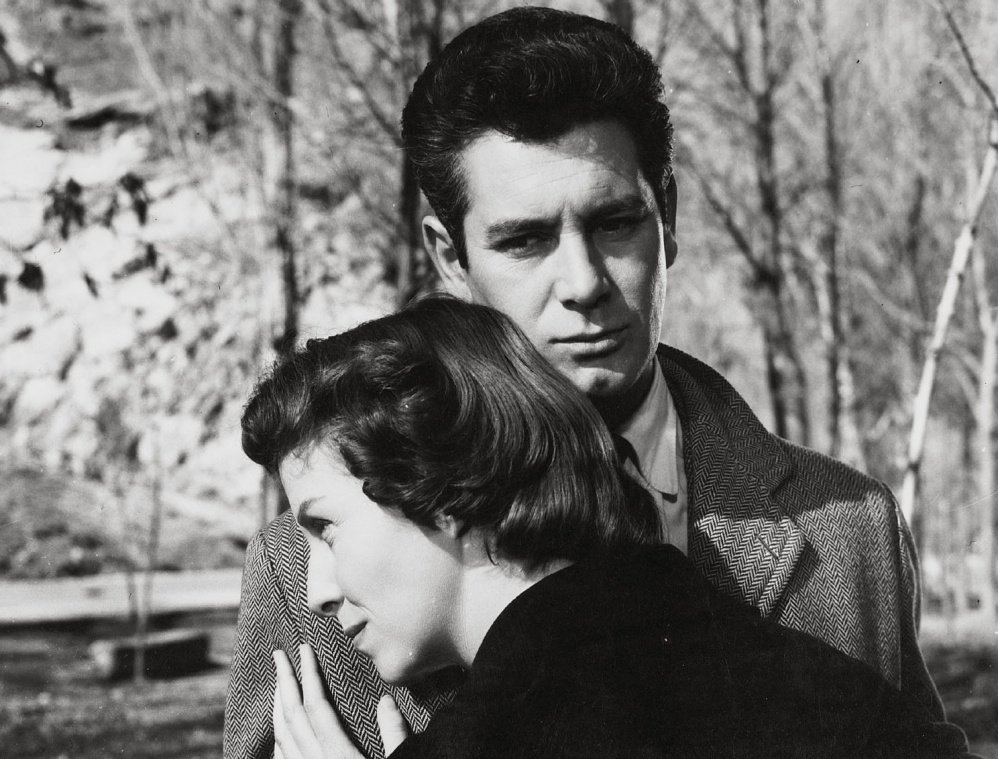
1. Calle Mayor (1956), de J.A. Bardem
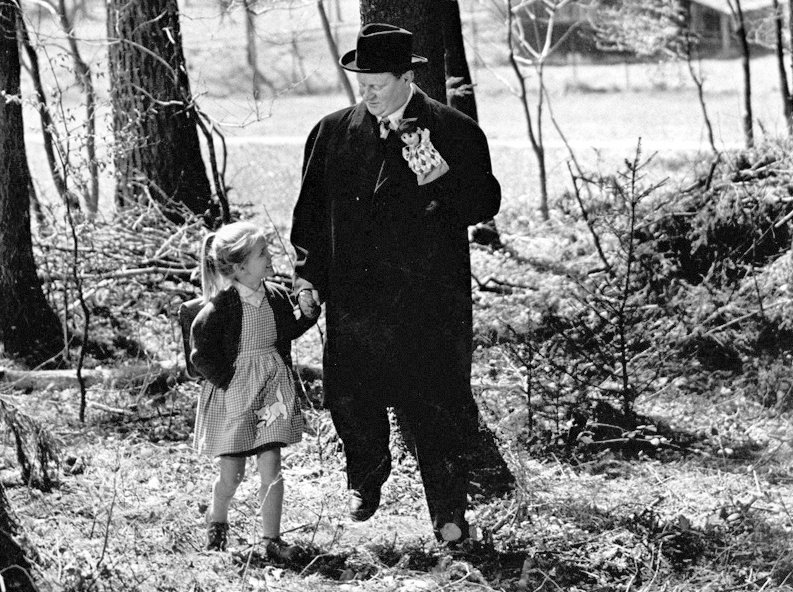
2. El Cebo (1958), de Ladislao Wajda
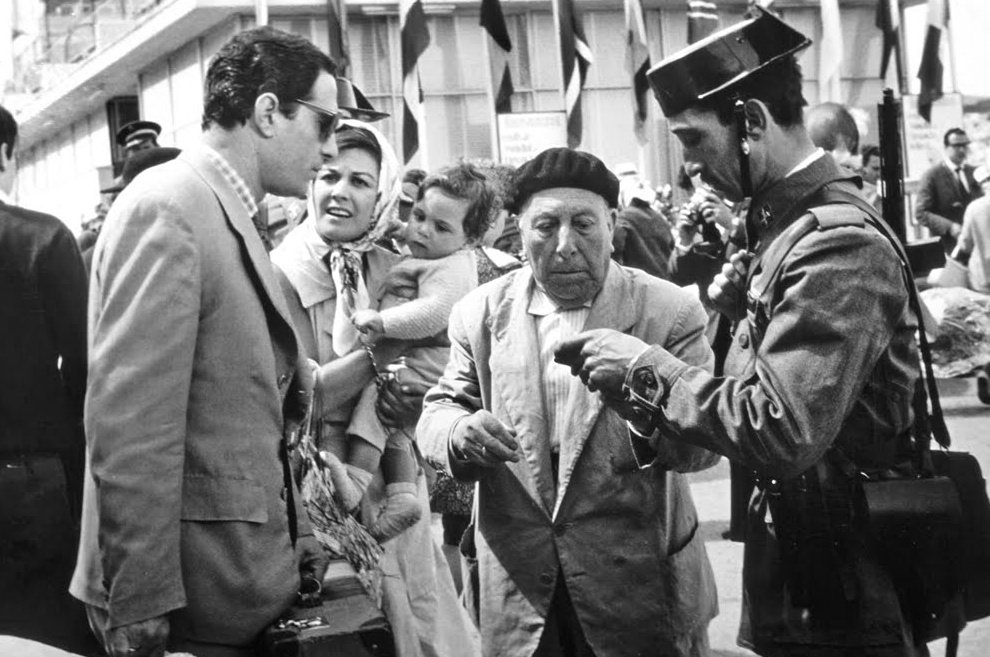
3. El verdugo (1963), de Luis García Berlanga
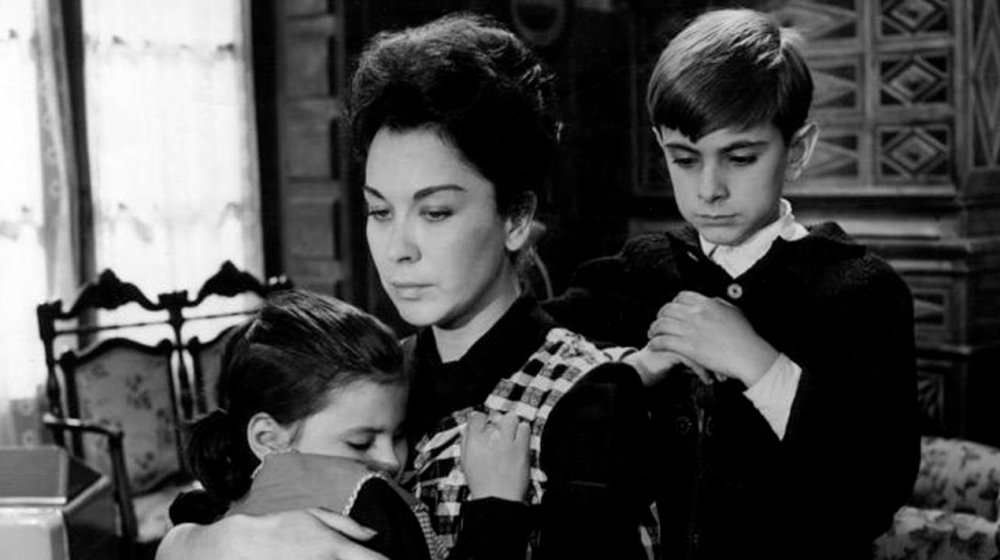
4. La tía Tula (1964), de Miguel Picazo
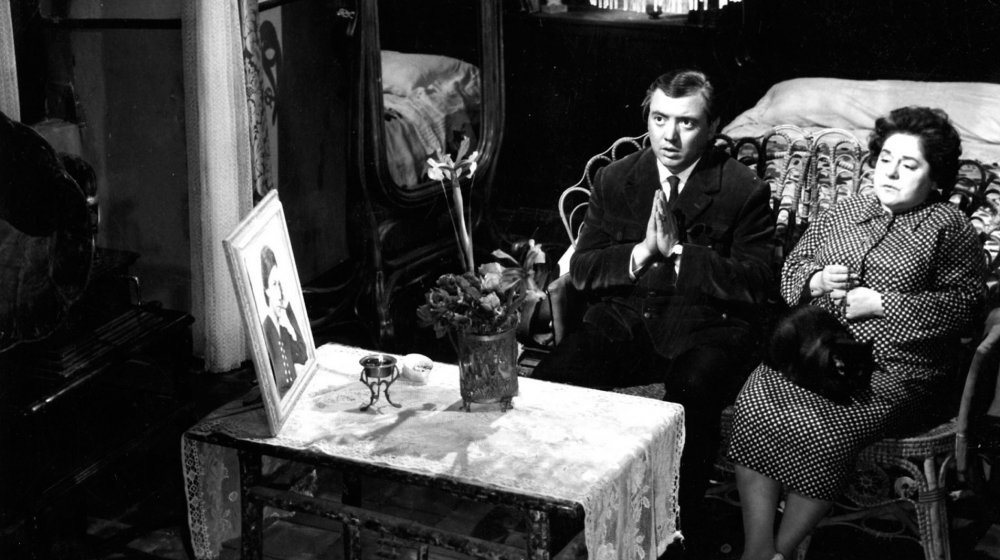
5. El extraño viaje (1964), de Fernando Fernán Gómez
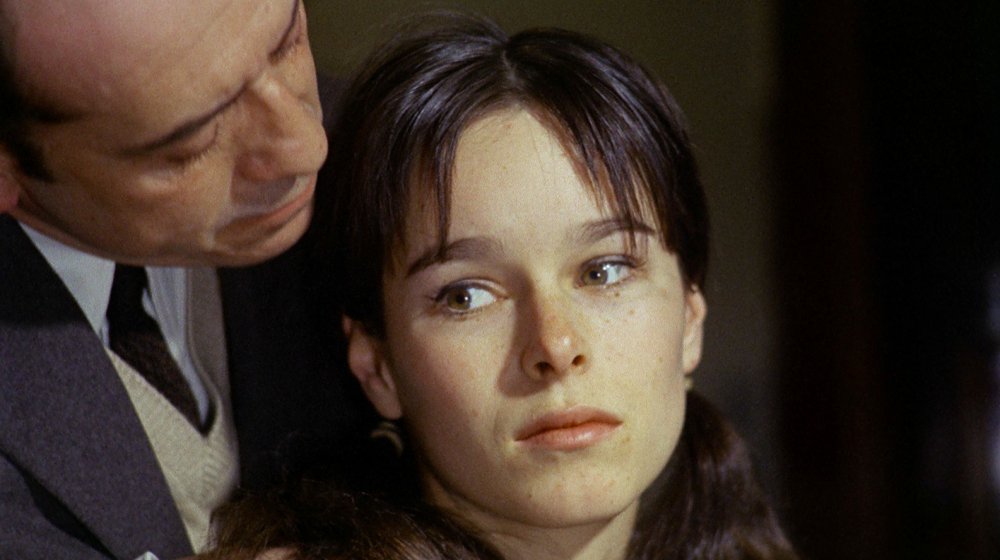
6. Peppermint Frappé (1967), de Carlos Saura
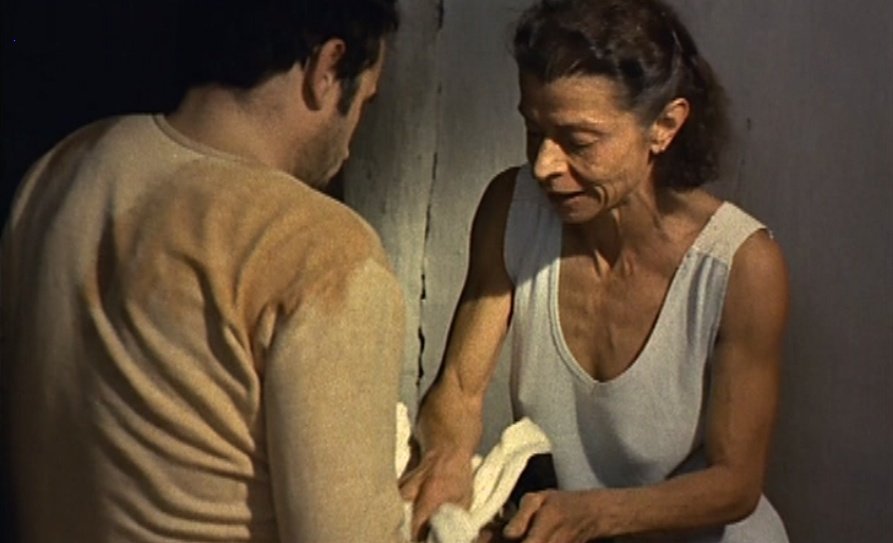
7. Furtivos (1975), de José L. Borau
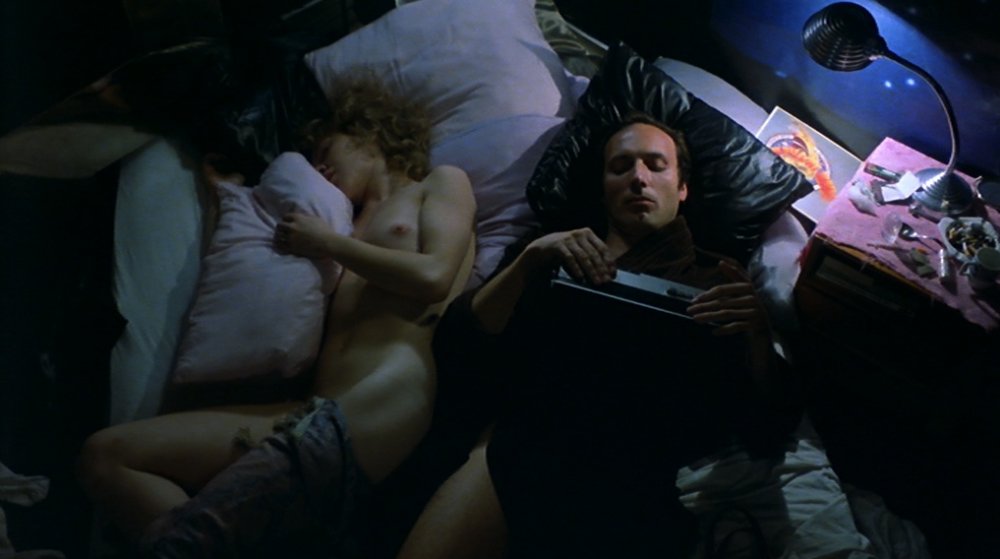
8. Arrebato (1979), de Iván Zulueta
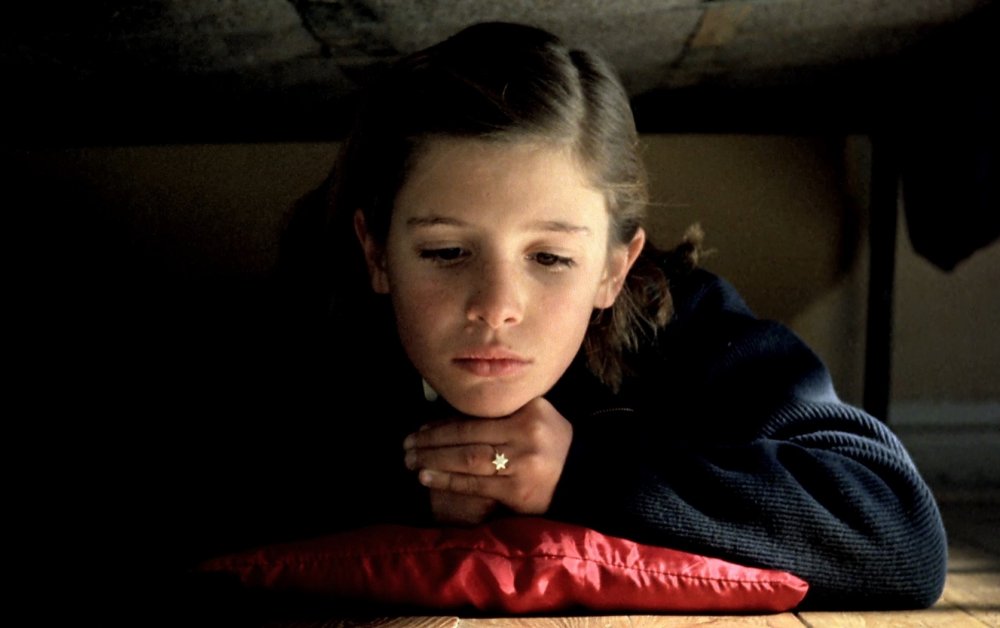
9. El sur (1983), de Víctor Erice
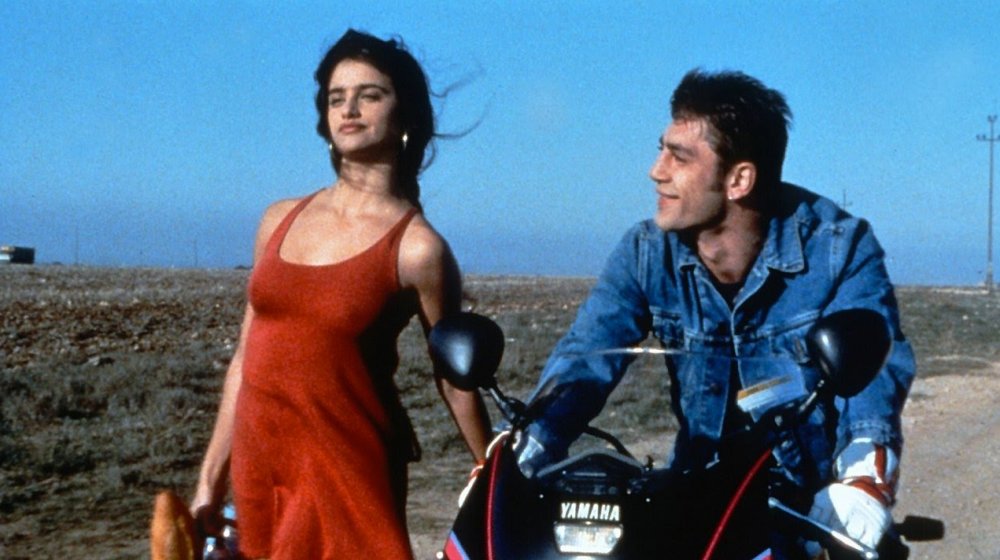
10. Jamón, Jamón (1992), de Bigas Luna
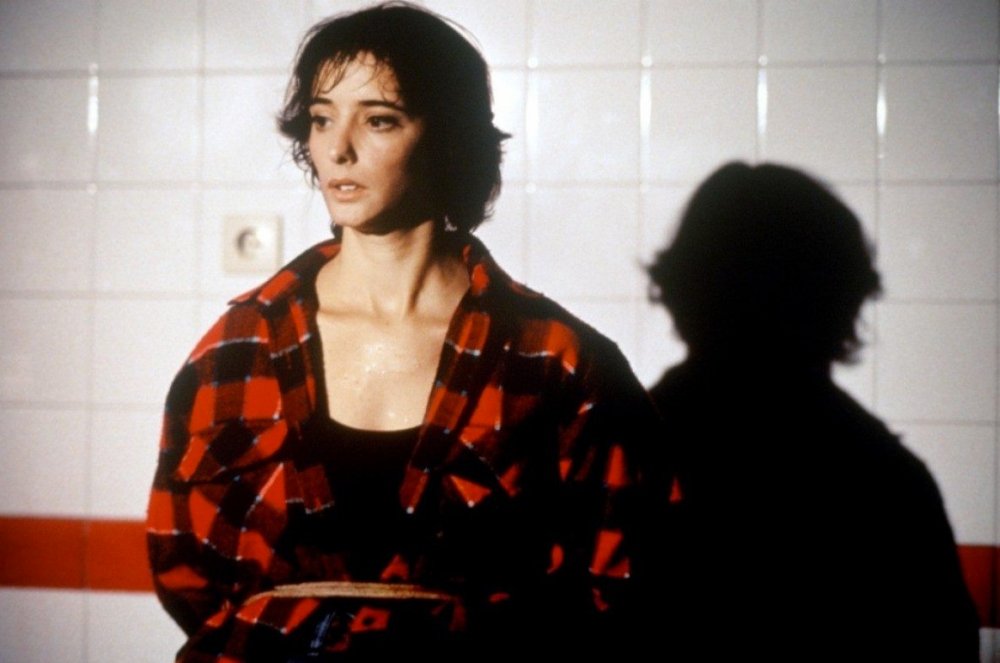
11. Tesis (1996), de Alejandro Amenábar
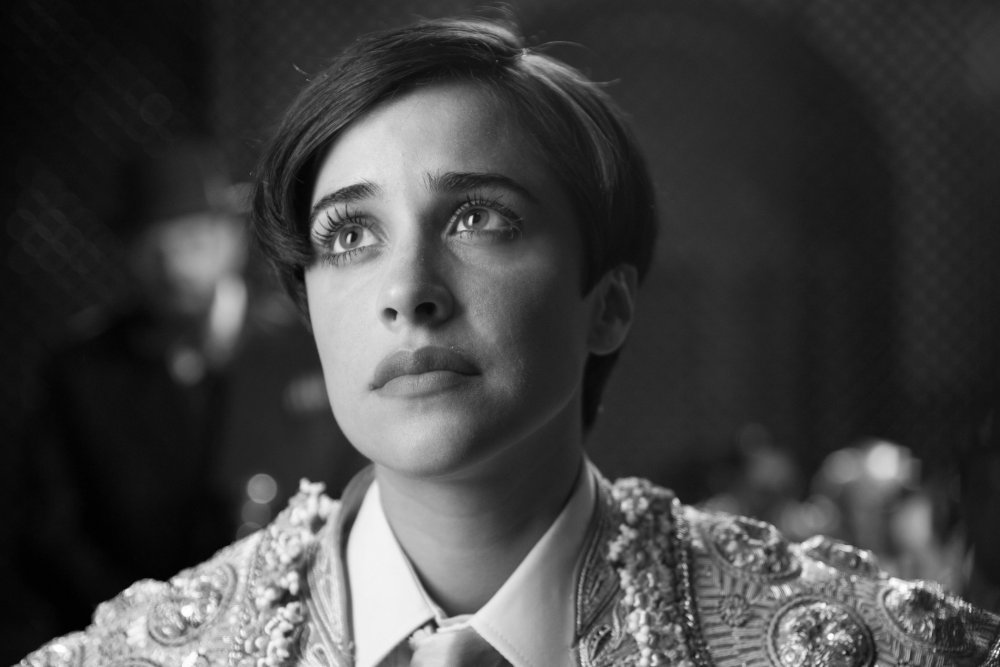
12. Blancanieves (2012), de Pablo Berger
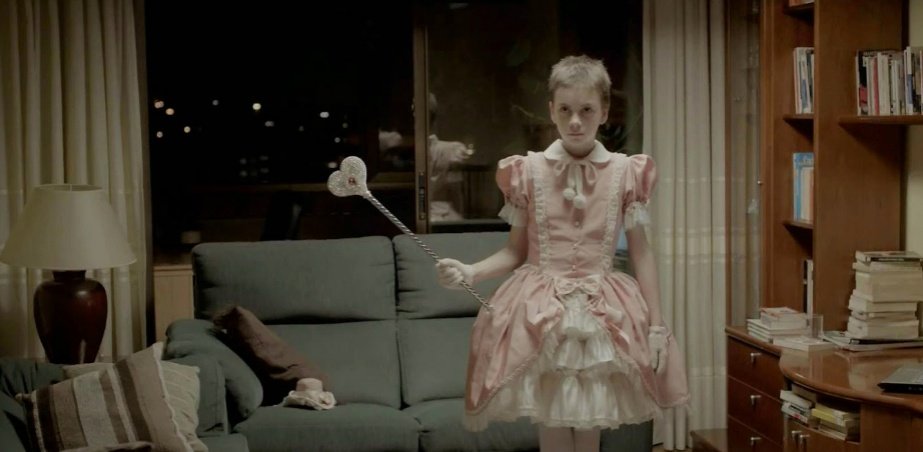
13. Magical Girl (2014), de Carlos Vermut
¿Hay entre ellas alguna de tus favoritas?
Today through October, London turns to Spain; the British Film Institute and Curzon Cinemas go over Pedro Almodovar‘s work, in a packed schedule featuring the Spanish filmmaker’s most outstanding films at Curzon Bloomsbury and BFI Southbank.
Almodovar, Doctor Honoris Causa by the University of Oxford, is considered to be one of the most outstanding contemporary filmmakers. His unique approach to the craft has earned him a loyal following, even among those who do not necessarily enjoy the final outcome. Almodovar has told the human stories that emerged from a post-dictatorship Spain and its evolution over the past 4 decades.
In a recent interview with BFI and before going on to talk about Julieta, his latest feature film, to premiere in the United Kingdom this coming August, Pedro Almodovar recommended 13 films that he claims have influenced his work one way or another. August through October, the films below will also screen at Southbank as part of the series dedicated to Pedro in the British capital:
1. Calle Mayor (1956), de J.A. Bardem
2. El Cebo (1958), de Ladislao Wajda
3. El verdugo (1963), de Luis García Berlanga
4. La tía Tula (1964), de Miguel Picazo
5. El extraño viaje (1964), de Fernando Fernán Gómez
6. Peppermint Frappé (1967), de Carlos Saura
7. Furtivos (1975), de José L. Borau
8. Arrebato (1979), de Iván Zulueta
9. El sur (1983), de Víctor Erice
10. Jamón, Jamón (1992), de Bigas Luna
11. Tesis (1996), de Alejandro Amenábar
12. Blancanieves (2012), de Pablo Berger
13. Magical Girl (2014), de Carlos Vermut
Did you spot any favourites on the list?
Estreno en Londres de «Desde Allá» / ‘From Afar’ To Premiere In London
Tras cosechar excelentes críticas en Variety, el New York Times e Indie Wire, la lucha de poder escenificada en Caracas y retratada por Lorenzo Vigas llega al ICA el próximo jueves 30 de junio a las 20:15h. Lo que hace este estreno excepcional es el hecho de que contaremos con la presencia del director del largometraje en la sesión de preguntas y respuestas posterior al visionado, que presidirá la curadora, académica y crítica María Delgado.
Lorenzo Vigas ganó el León de Oro en Venecia en septiembre del año pasado. «Desde allá» se basa en el romance entre un hombre de mediana edad y estatus social acomodado (Alfredo Castro), y un criminal adolescente de vida turbulenta (Luis Silva). «Desde allá» está co-escrita por Guillermo Arriaga, guionista nominado al Oscar y antiguo colaborador del director de «Birdman» Alejandro González Iñárritu, y co-producida por varias figuras destacadas de América Central y del Sur, incluyendo a Arriaga, al actor venezolano Édgar Ramírez y el director mexicano Michel Franco.
After rave reviews in Variety, New York Times and Indie Wire, Lorenzo Vigas’s stunning portrait of a power struggle set in Caracas will be showing at ICA on 30 June 8:15pm with the director present for a Q+A hosted by academic, critic and curator Maria Delgado.
Lorenzo Vigas won the Golden Lion in Venice last September. From Afar is based on the romance between a relatively well-off middle-aged man (Alfredo Castro) and a troubled teenage criminal (Luis Silva). From Afar was co-written by Guillermo Arriaga, an Oscar-nominated screenwriter and former regular collaborator of Birdman director Alejandro González Iñárritu, and co-produced by various Central and South American luminaries, including Arriaga, the Venezuelan actor Édgar Ramírez, and the Mexican director Michel Franco.
